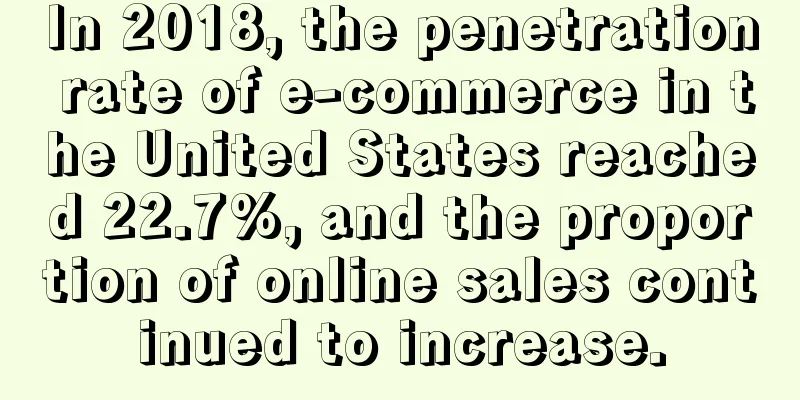What is KKR Group? KKR Group Review

KKR Group, translated as "Kohlberg-Kravis" in Chinese, was co-founded by three founders in 1976. It is headquartered in New York and is the acquisition king of veteran Zheng Zong. KKR is known for completing large and complex direct investment transactions, and has been committed to building leading companies in various industries around the world. KKR has a huge network of financial, business and political elites around the world, and has always focused on helping invested companies improve their operational management level and create long-term corporate value by making full use of KKR's global resources. English Kohlberg Kravis Roberts & Co. LP Founded in 1976 Headquarters in New York Founders Henry Kravis, George Robert, Jerome Kohlberg Website http://www.kkr.com/Company IntroductionIn 1976, Henry Kravis, his cousin George Roberts and their mentor Jerome Kohlberg co-founded KKR, whose name is derived from the initials of their surnames. KKR is an equity investment company that focuses on acquisitions and restructuring of enterprises, and is particularly good at management buyouts. KKR Group is headquartered in New York and has multiple offices in San Francisco, London, Paris, Hong Kong, Tokyo, Beijing and other places. Business ScopeKR's business scope covers private equity, real estate, infrastructure, credit, hedge funds, capital markets, investment portfolios, etc., among which private equity investment is its core business. Business philosophyFirst of all, KKR focuses on cooperation. Not only does the company's internal operations management, customer and partnership, capital market and other teams work together with investment professionals; it also works closely with outstanding entrepreneurs with rich management experience. Through the organic combination of investment industry expertise, investment experience and operation expertise, KKR is able to capture better investment opportunities and create value. KKR's strategy is not only to serve as a financial partner to the management team of the invested company, but also to make full use of existing global resources to assist the operation of the invested company. In addition, KKR's private equity professionals are assigned to various industry teams and work as experts in their respective fields. They are also divided by region, and the team has local expertise, experience and relationship networks while having a global perspective. Relying on global experience, local relationship networks and local understanding, KKR is able to obtain more opportunities and bring higher returns. Finally, as a long-term investor, KKR is committed to creating value for its investment partners, investee companies, their employees and the communities in which they operate, thereby achieving long-term returns. Merger and Acquisition Requirements1) Have relatively strong and stable cash flow generation capabilities; 2) The management of the enterprise has worked in the enterprise management position for a long time (more than 10 years) and has rich experience; 3) Have great potential and ability to reduce costs and increase operating profits; 4) The corporate debt ratio is low. Income SourcesKKR's revenue comes mainly from two categories: fee-related and investment income Fee income also comes from different sources. For example, in the private equity market, related fees include fund management fees (generally the supervision fees of the 100-200 BP investment companies that raise funds) and transaction fees. Investment income also varies depending on the business segment. Investment income is KKR's most important source of income. In 2015, KKR's investment income accounted for about 86% of its total income. Related fee income accounted for only 14%, which shows its strong ability to create investment income. Development HistoryThe decision to create KKR was made in 1976 by Henry Kravis and George Roberts over dinner at Joe and Rose restaurant. Participated in the initial allocation of state public pension funds in Oregon, Washington and Michigan to invest in KKR private equity investments in 1982. In 1984, KKR raised its first $1 billion institutional fund. In 1998, with the establishment of the London office, KR further developed its European business and the European investment platform was further developed. In 2002, KKR Capstone was formally formed. KKR Capstone is an integral component of value creation for KKR private equity portfolio companies, extending operational excellence to all KKR portfolio companies. In 2004, KKR's credit investment platform was launched. KKR Credit leverages the company's differentiated advantages in various products (such as leveraged and alternative bond investments) to provide clients with a wide range of active investment strategies. In 2006, KKR Capital Markets was established to support its portfolio companies and clients through innovative financial solutions. In 2007, KKR established a Tokyo office to expand KKR's Asian investment platform. In 2008, KKR launched its Green Portfolio program in partnership with the Environmental Defense Fund, focusing on creating shared value. In 2009, KKR expanded into Europe and a dedicated infrastructure and energy investment platform was born. In 2011, the acquisition of KKR PRISMA expanded KKR's hedge fund operating capabilities. At the same time, KKR also invested in Nephila Capital, the largest investor in the field of reinsurance risks. In 2013, KKR Global Research Institute was established to provide insights and analysis on geopolitical and global trends. In 2014, KKR acquired AVOCA CAPITAL to expand its European credit business; KKR established KKR Financial Holdings to achieve scale expansion, enhance diversification, and improve balance sheet liquidity and yield; at the same time, KKR invested in a credit-oriented hedge fund specializing in energy and hard asset investments. In ChinaIn 2005, KKR established an office in Hong Kong, China, marking its first step into the Asian market. In 2011, KKR established a Chinese real estate joint venture with Sino-Ocean Group. In 2012, KKR invested in China Cord Blood Bank. In March 2016, KKR and Alibaba jointly invested in the C round of financing for fresh food e-commerce company Yiguo Fresh. In November 2016, KKR invested in China Vanke's subsidiary China Vanke Juda and held approximately 12% of the latter's equity. In March 2017, KKR completed its investment in Chinese pet food manufacturer Guaibao Pet Food Group. In October 2017, KKR Group led the US$200 million Series C financing for Suishou Technology, a domestic personal finance application. This was the first project invested by its Asia III Fund and its first foray into the financial technology field in China in 11 years. |
<<: What is Blackstone Group? Blackstone Group Review
>>: What is Youjia Express? Youjia Express Review
Recommend
Walmart completely removes GMV threshold, Walmart+ membership surges by 20%
According to PYMNTS data, in 2022, about 182 milli...
What is Limango? Limango Review
Limango is one of the most famous online hypermark...
What is Price Spectre? Price Spectre Review
Price Spectre was developed in 2009 by eBay's ...
The US holiday shopping season is about to begin! More than 70% of online consumers choose Amazon!
A new survey from shopping and rewards app Shopkic...
What is Shopkeeper? Shopkeeper Review
Shopkeeper is a profit dashboard that tracks sales...
What is iCraft Gifts? iCraft Gifts Review
iCraft Gifts is headquartered in Toronto, Canada. ...
Get it for free! The 2024 Cross-border E-commerce Industry Annual Report is released
2024 is an extremely special year for the cross-bo...
A large number of listings have been removed from the shelves, and Amazon is tightening category review!
There are less than 4 days left until Prime Day. A...
What is Shopper? Shopper Review
Shopper is a subscription-based monthly delivery s...
Summary of strategies for Amazon sellers to deal with malicious competition
More and more malicious sellers on Amazon are abu...
Amazon sellers were cheated of over 420,000 yuan! Malicious returns and exchanges are rampant!
It is learned that since the end of March this yea...
The latest changes to Amazon's flash sale pricing policy!!
text Recently, a European seller found that the f...
51% of American consumers will shop online early next year! Strong demand for electronic products!
<span data-shimo-docs="[[20,"获悉,根据物流运输公司Pi...
What is AJIO? AJIO Review
AJIO is an Indian fashion clothing shopping websit...
What is EBANX? EBANX Review
EBANX is a local cross-border payment solution ser...









